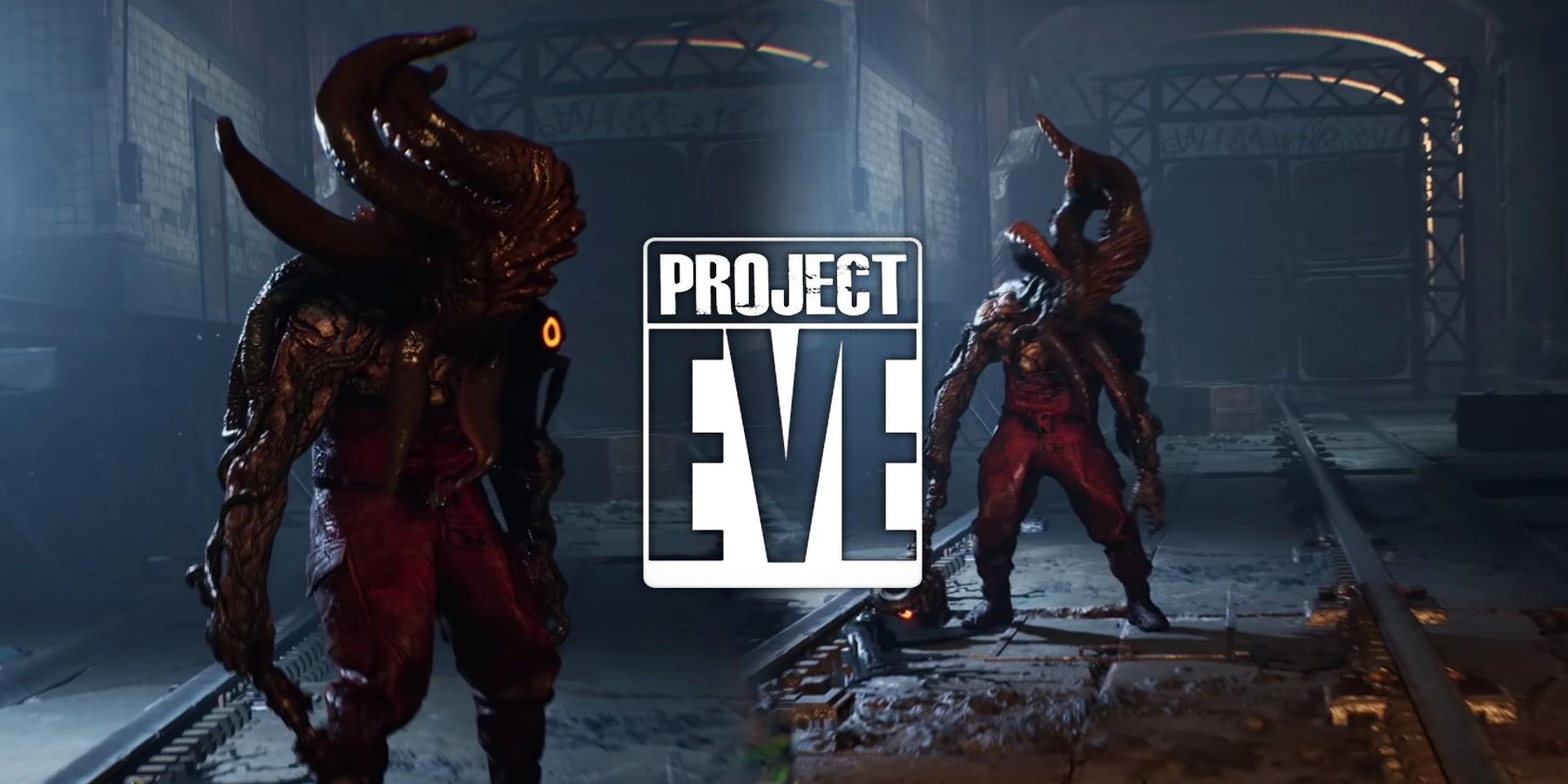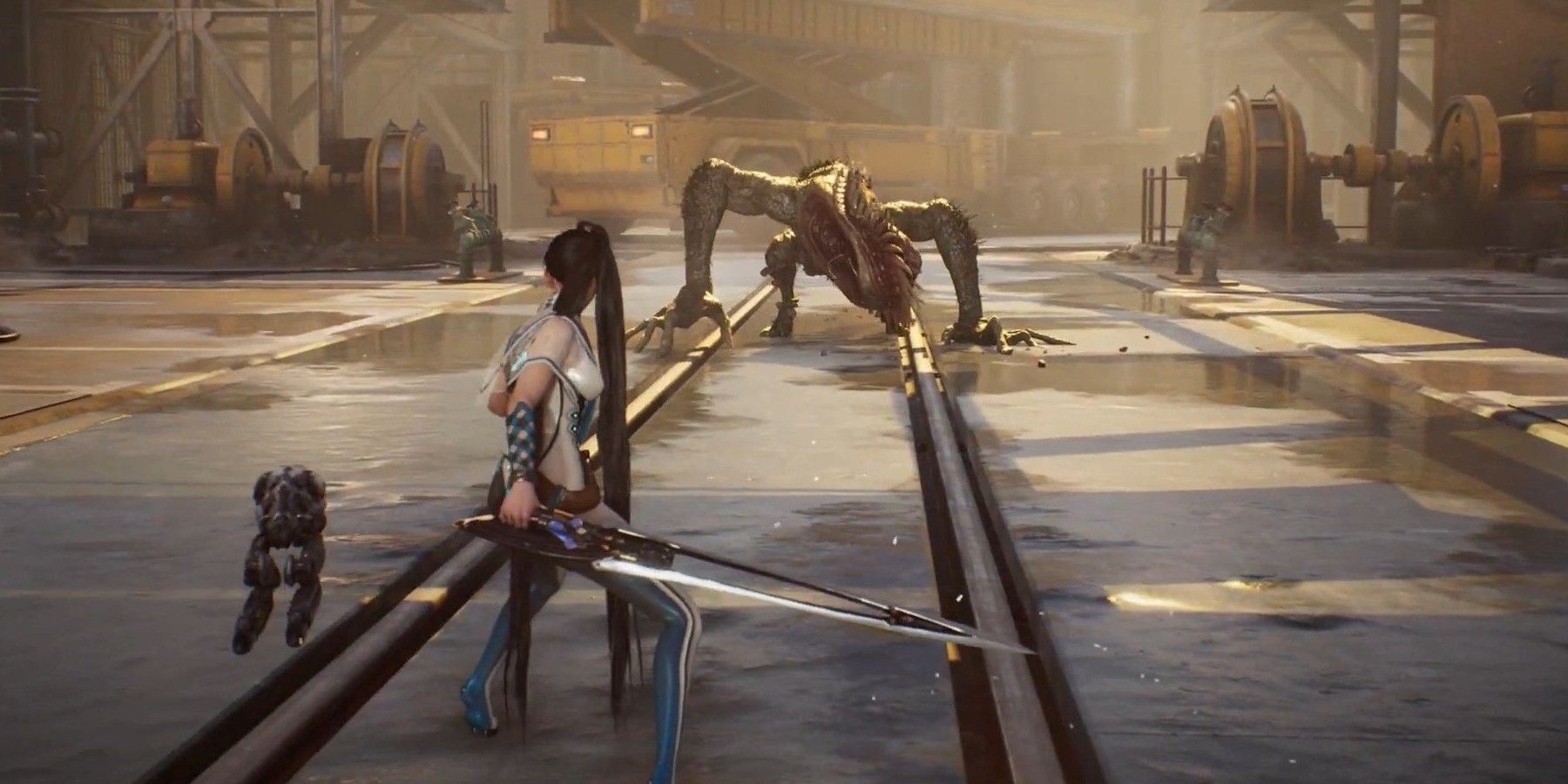Many RPG fans are excited for the upcoming Project Eve, and with good reason. The game has a stunning blend of sci-fi and fantasy elements and promises some really well-executed gameplay, as a recent trailer at the PlayStation showcase illustrated. However, one element of the game feels entirely out of place in the story and sends an extremely problematic message. The game's narrative follows Eve being deployed from a colony in space to Earth, which has been taken over by an alien race. The name of these alien invaders is NA:tives. The name is confusing, to say the least.
For context, Project Eve is being developed by SHIFT UP, a South Korean company. As with any transnational game, translation must be taken into account with any critique of names or phrasing; still, the fact remains that during either the development or translation stage of this game, multiple people signed off on the naming of these enemies. First and foremost, the name is simply a little bizarre in its stylization, as the idea of calling an invading alien race anything resembling the word natives is simply counterintuitive at best. However, with a little consideration and contextualization, it becomes a lot more problematic.
Natives as Invaders
The NA:tives in Project Eve invaded Earth sometime before the game begins, and ousted all the humans. An alien race being called NA:tives is pretty unusual since alien and native have pretty diametrically opposed meanings (without getting into the political connotations just yet). Furthermore, the NA:tives being an invading force is an incredibly confusing sentiment. Generally, the terms native or indigenous are used with reference to a colonized country and as a means of identifying the colonized as opposed to the colonizers.
While video games, film, and TV have historically featured blatantly discriminatory depictions of native peoples, there are many indigenous people working in game development, and some AAA game developers have attempted to rectify previous poor depictions through projects such as Oregan Trail. However, having NA:tives be the actual invaders in Project Eve is a very poor choice considering the history of violence committed against actual native people by colonizing forces. So many places in the world have been colonized and horrific crimes have been committed against their native peoples; this means that the cultural context of the development of this game isn't all that important, since it is a global issue.
Natives as the Enemy
Not only is it pretty weird to call an invading force NA:tives, but it gets worse when you realize that the NA:tives are the enemies players will be mowing down in the game. As mentioned, a horrific amount of violence has been committed against indigenous peoples, from forced sterilization to the brutality of residential schools, and of course land theft; this makes the act of killing multitudes of NA:tives entirely disturbing. The NA:tives in Project Eve have a design closer to the necromorphs of Dead Space than to any actual indigenous population, but in that respect, their design makes them grotesque and Other, which just makes it even more troublesome that their name is NA:tives.
This may simply be a huge oversight by SHIFTUP or the result of a lack of diversity within the development and publishing. Another possibility is that this is intentional, and Project Eve will have a decent explanation for the name. However, not enough is known about the lore in Project Eve's futuristic setting, so there's no way to know this until the game comes out. What is abundantly clear at this point, though, is that there has not been much coverage of this poor name choice, which worsens the problem of condoning these harmful game depictions through complacency. While Project Eve could be fantastic from a gameplay perspective, the enemies being called NA:tives is undeniably problematic.
Project Eve is currently in development.



